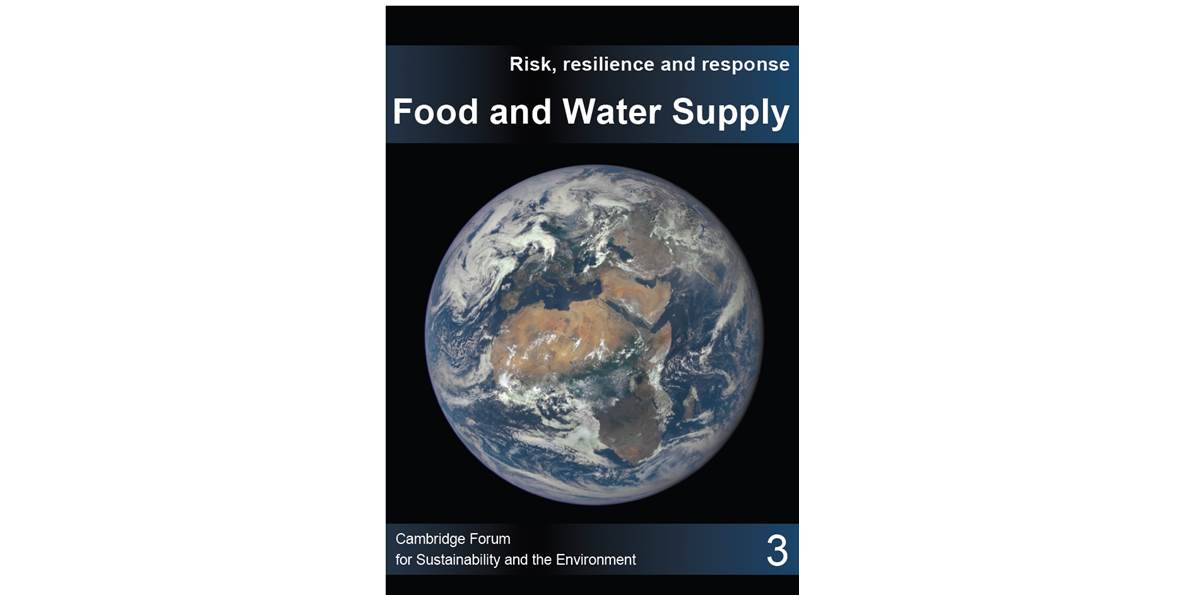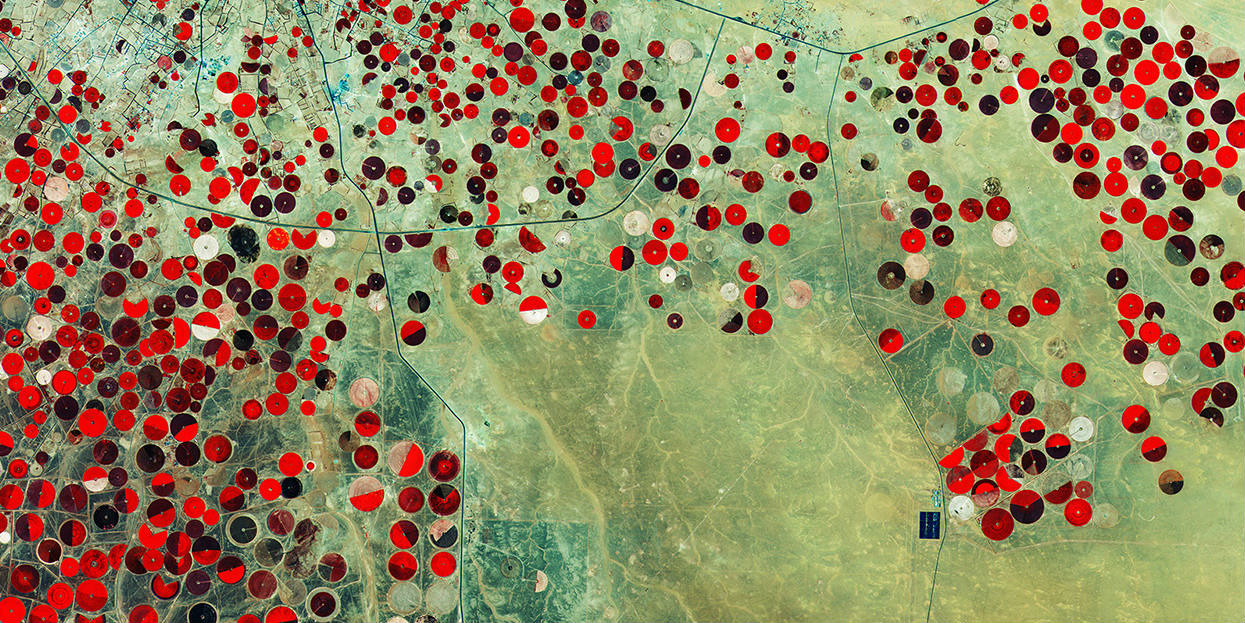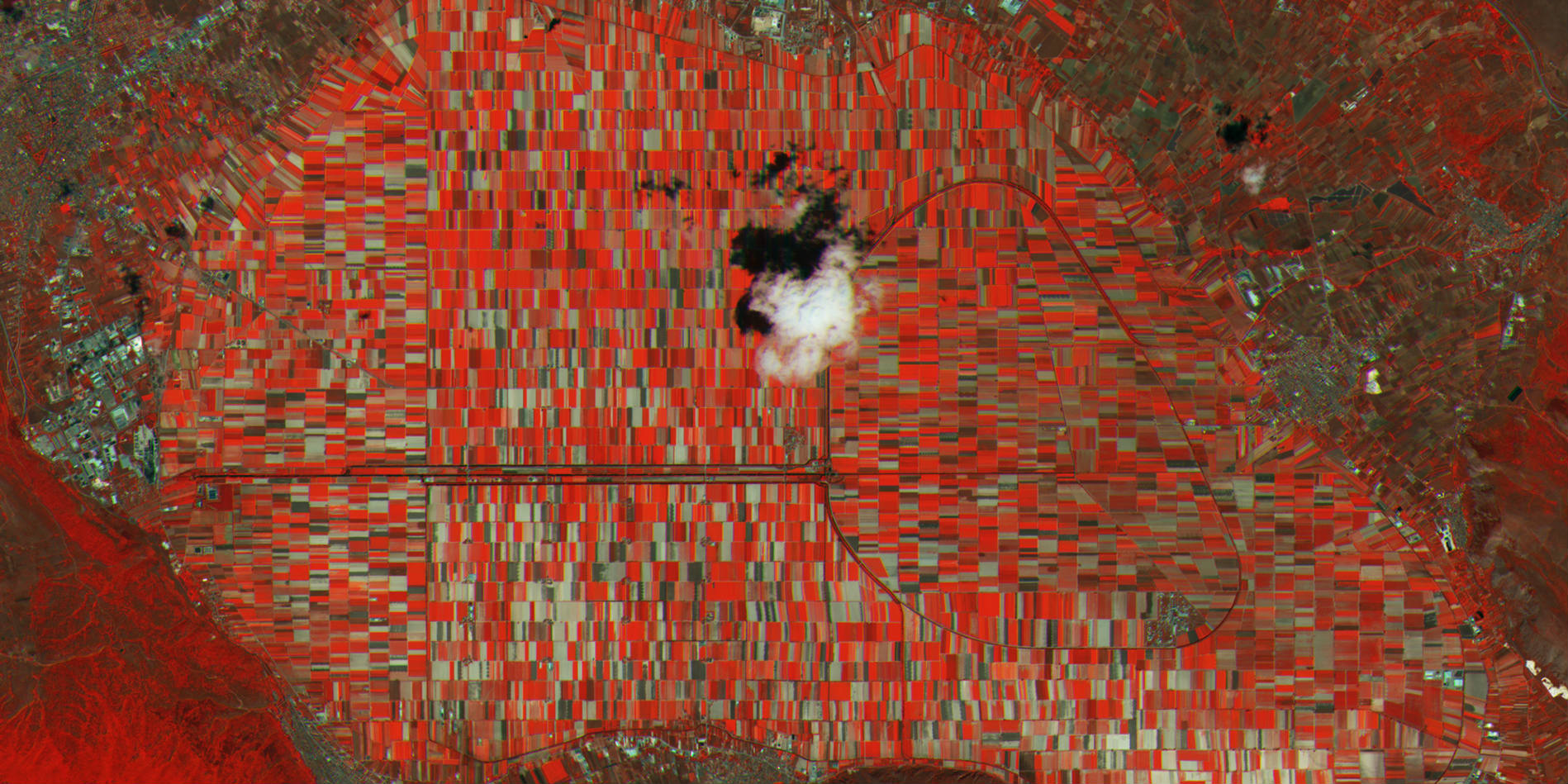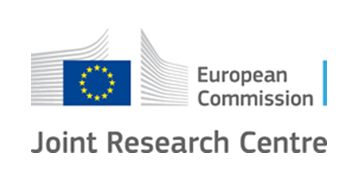
Between October and December 2015, we focused on food and water security and supply chain resilience.
These three meetings were jointly hosted with the Joint Research Centre (JRC), the European Commission’s in-house science service which employs scientists to carry out research in order to provide independent scientific advice and support to EU policy.
This collaboration originated in a Memorandum of Understanding between the University and the JRC which was signed in September 2015 in order to promote and deepen understanding between the two institutions. 'Green Growth and Sustainability' was chosen as the pilot activity and the Forum worked with the JRC Institute for Environment and Sustainability, and University Strategic Initiatives, including the Cambridge Conservation Initiative and the Global Food Security Initiative, to develop a series of meetings and projects to explore potential areas for future collaboration.
The three co-hosted Forum meetings formed a core part of this programme and each month, expert witnesses and guests from the JRC came to Forum meetings and helped to shape the theme as a whole.
Other witnesses and guests were drawn from companies such as Microsoft Research, Vizzuality and Google Deepmind, and Cambridge Conservation Initiative partner organisations, including Fauna and Flora International (FFI), UNEP-WCMC, the British Trust for Ornithology (BTO) and RSPB. Experts in this field also joined us from across the University, including people from the Institute for Manufacturing, the Judge Business School, the Centre for Development Studies and the Cavendish Laboratory.
A bird's eye view of our discussions
The quality and quantity of data were mentioned extensively in all three meetings. In the first meeting, Professor Alan O’Neill highlighted that big data is providing new kinds of datasets and opportunities to measure resilience and risk at a global scale in real-time and at high resolution. However, the volume, complexity and heterogeneity of large-scale datasets also pose challenges for both researchers and policymakers. As a result, there is a need to train more data scientists who are not only technical experts but also familiar the underlying environmental, social and economic issues. This will enable them to know both what questions to ask and how the data can be used to answer them. Although innovation and developing new techniques is important, solving some of these problems may not necessarily involve more advanced technology. Dr Matt Smith suggested that some of the data challenges we face are, in fact, quite basic and simplistic rather than intellectual. Thus finding ways to apply existing technology is as important as developing new solutions.
In addition, Thierry Nègre suggested that, despite the recent advances in data collection, there is an issue with the scarcity and quality of data in areas such as food security or food production. This was, particularly in developing contexts because of issues such as the lack of resources or funding and institutional barriers rather than due to any particular technological limitations. This compromises the ability to develop accurate models in key areas. The limitations posed by institutional barriers with regard to both data collection and effective use of data was mentioned frequently throughout the meetings.
A related problem was that of turning data into useful information and then communicating that information in a meaningful way to end-users. Currently, there is a disconnect between the amount of data, the information gleaned from these data and people’s ability to turn theory into practical solutions. Craig Mills described the work his company, Vizzuality, does to visualise complex scientific datasets to create clear, communicable messages that people can interact with and understand. He and his team often have to work closely with researchers to ensure that the messages from the data are clear and simple while still maintaining its scientific integrity. Presenting complex information is a real challenge and both technological solutions and way the results are communicated needs to be adapted to suit the target audience. More research into how data affects decision makers was also recommended, as there can be external factors that override the influence of scientific advice on policy decisions.
Using big data effectively and ethically was another recurring theme. Stephen Peedell argued that remotely sensed data does not replace the need for ground sensors and information, but instead compliments it. Remote sensing data will always needs to be ‘ground-truthed’, and aligning it with economic, social and biological data provides both context and cements connections between changes in the environment and the effects on people’s lives. Consequently, there also needs to be better links between large-scale datasets and data that are gathered at a more local level.
There were also concerns over the proprietary nature of some datasets, issues regarding data standards and data confidentiality. Publicly funded institutions such as the Joint Research Centre have open data policies and strict guidelines surrounding data standards as well as the infrastructure to provide technical and content updates and support. Other data providers, such as private companies, do not have such obligations and can choose which data they put in the public domain, for how long and the conditions they attach to using it. Privately held data contains a wealth of detail and information and there is a danger that if these datasets are not openly and transparently made available, opportunities to address local and global scale challenges may be lost. Sharing data may raise confidentiality concerns, but these should be weighed against the potential value derived from data being examined from a wide range of perspectives.
The resilience of food chains was examined, and Dr Mukesh Kumar identified three principle areas of concern: crop failure, product failure and supply chain failure. This was echoed by Professor Jaideep Prabhu who discussed food waste in developing countries stemming from supply chain issues, such as the lack of information for farmers concerning neighbouring areas and consumer requirements as well as the need for a better cold chain.
Throughout the three months the need for a multidisciplinary approach was emphasised, particularly, as Dr Francois Kayitakire pointed out, in the case of food security. There are a number of interrelated issues that must be considered as part of a system approach, such as conflicts surrounding resources or the need for income-related social protection to help bolster access to food. Our goals and the means to achieving them should orientate around a problem, rather than a discipline. This general approach was echoed by Dr Drew Purves, who emphasised that food must be part of a global system, particularly given the increasing risk posed by climate change. It was also repeatedly stated that a long-term view is needed to build resilience in food and water systems, although short-term interventions can serve a purpose when an immediate impact is required.
For more information about these meetings, please follow the links on the right or contact Dr Rosamunde Almond (r.almond@damtp.cam.ac.uk)







